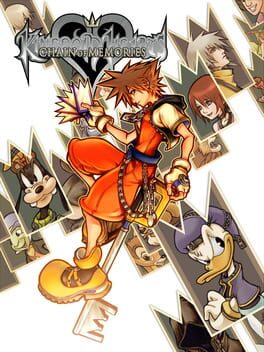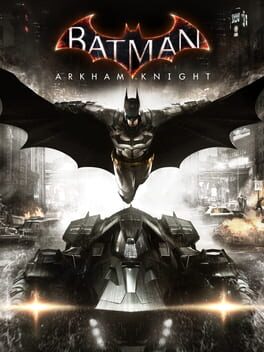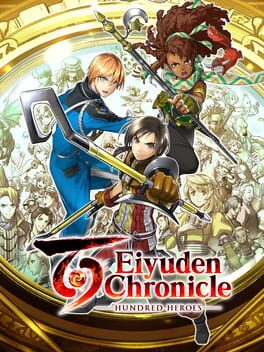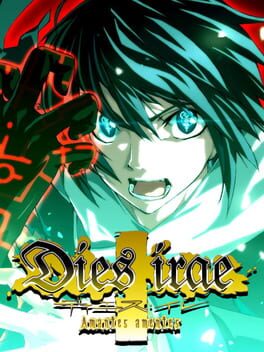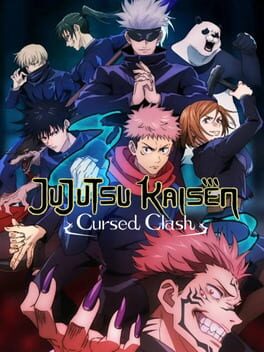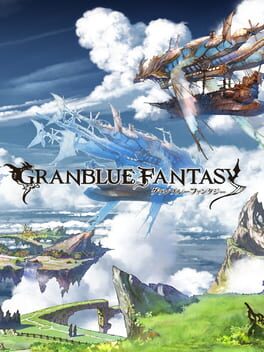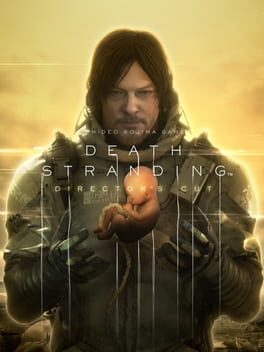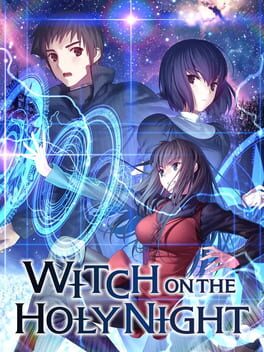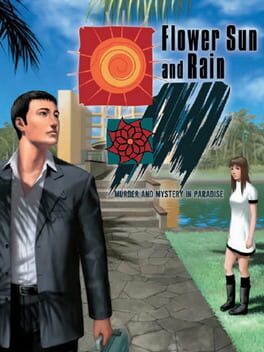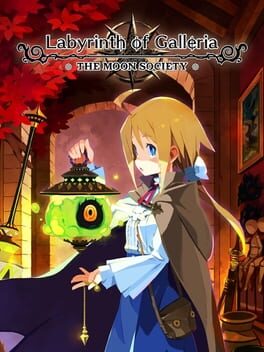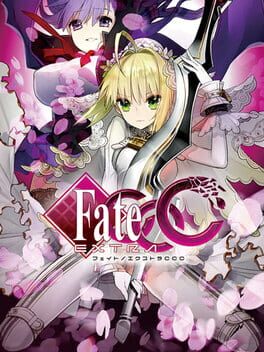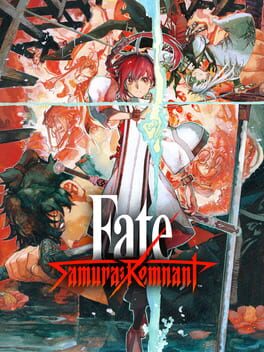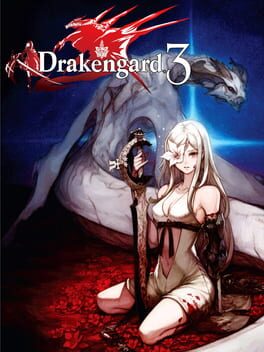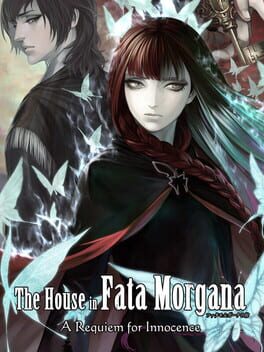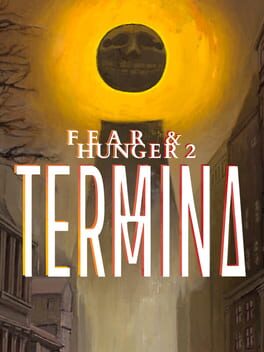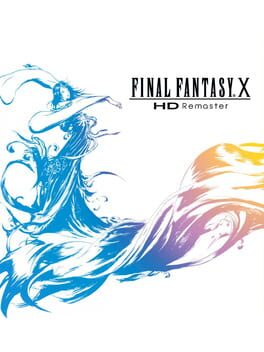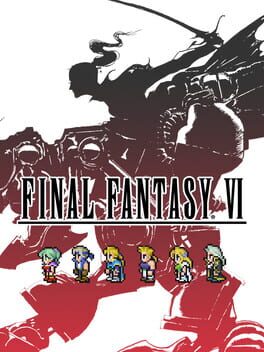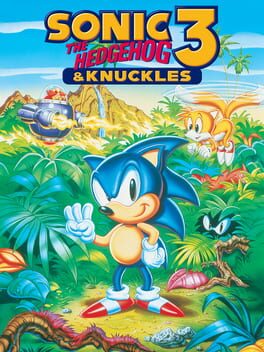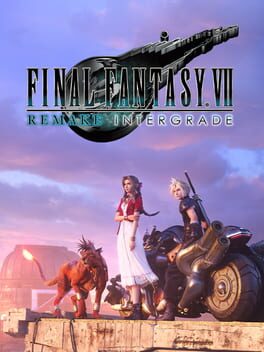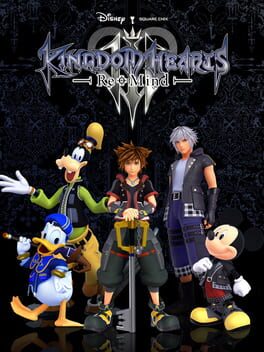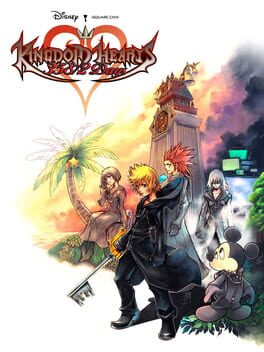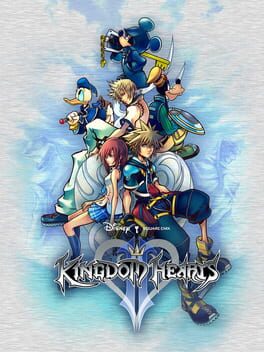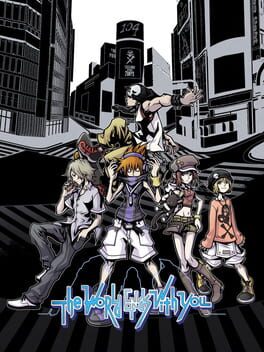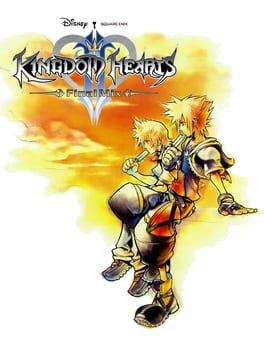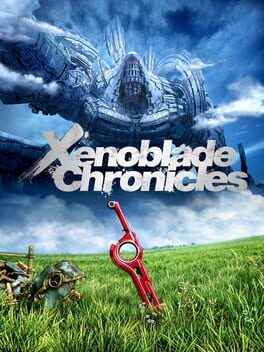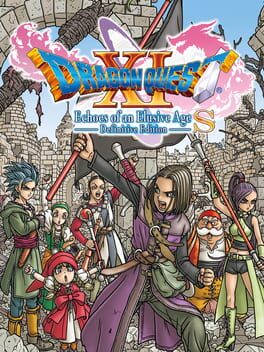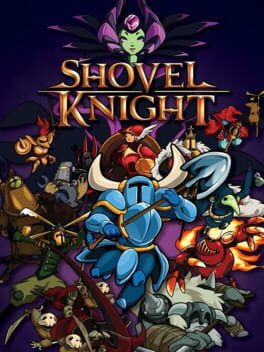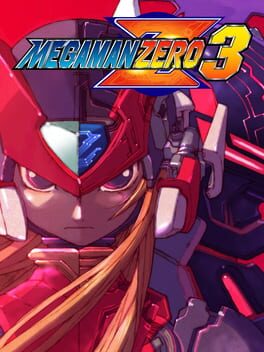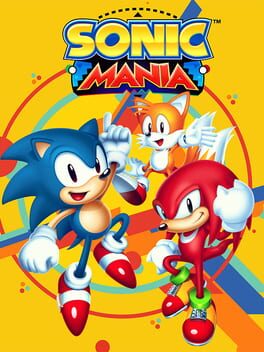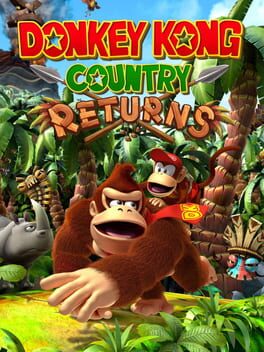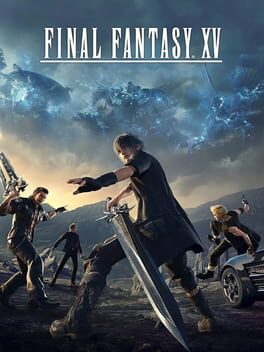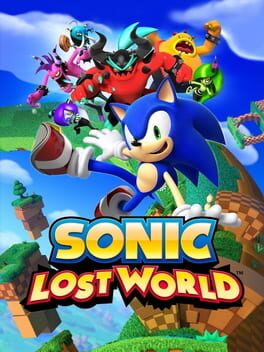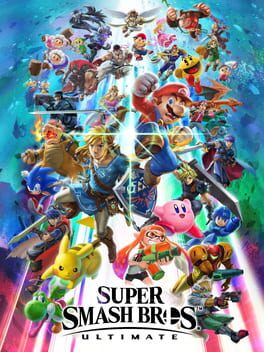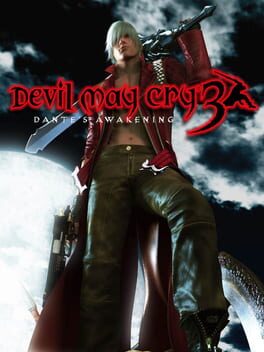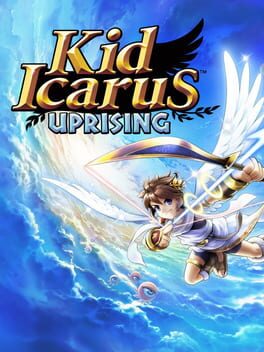NotJayden
224 reviews liked by NotJayden
ARGHHHHHHHHHHHHHHHHHHHHHHHHHHHHHHHHHHHHHHHHHHHHHHHHHHHHHHHHHHHHHHHHHHHHHHHHHHHHHHHHHHHHHHHHHHHHHHHHHHHHHHHHHHHHHHHHHHHHHHHHHHHHHHHHHHHHHHHHHHHHHHHHHHHHHHHHHHHHHHHHHHHHHHHHHHHHHHHHHHHHHHHHHHHHHHHHHHHHHHHHHHHHHHHHHHHHHHHHHHHHHHHHHHHHHHHHHHHHHHHHHHHHHHHHHHHHHHHHHHHHHHHHHHHHHHHHHHHHHHHHHHHHHHHHHHHHHHHHHHHHHHHHHHHHHHHHHHHHHHHHHHHHHHHHHHHHHHHHHHHHHHHHHHHHHHHHHHHHHHHHHHHHHHHHHHH
Eiyuden Chronicle: Hundred Heroes asks the important question, "What if you had an RPG with 120 party members", and answers that question to my knowledge the best that it could have given that challenging question. However, I still ask, was it worth it?
While the game boasts a large cast of mostly likeable characters where many of which end up serving a sizeable role in the story, most of these characters end up being one-dimensional save for a handful. As there is not enough time for them to change. Furthermore, most of these characters would have simply been put into NPC roles in a normal RPG if not for the fact that they now are NPCs... but also get to be in your party in a limited fashion. Still, it manages this fairly well in balancing them through having six main party slots, a support slot to allow non-combatant characters to join the party, as well as attendant slots if you don't want a plot relevant character to be in your primary party but still need to keep them around for the story. This all comes together giving a possible order of 10 party members which helps a lot in giving you space to experiment with them, and also to give them relevant party space compared to some other RPGs that attempted really large party sizes in that most of them were not able to give as much screen time and relevance as this game does even with significantly smaller casts. There are some creative ways to force the player to experiment and also to use more characters than a simple 6 from start to finish as well, which helps a lot in making you care about more than just your initial six. With so many to choose from, each player will settle into who they prefer.
The characters also come into the base building, which can be enjoyable apart from how constricting it actually is compared to how it originally appears, as all future upgrade materials are locked behind locations that you only get after completing specific chapters. Carefully keeping players "balanced" to be at about the same level for base building until they can advance the story in order to unlock more materials to expand.
This is where the major problems come in however. Pacing is all over the place, as key parts of an RPG are locked behind getting characters into your party and recruiting them to unlock things at your base of operation. Fast travel for one, is something locked at the 15 hour mark for when you unlock a character that gives you this ability, which means if you do a lot of side content before getting her, you'll be doing a ridiculous amount of backtracking, which the game points out in its story as a problem that you have to solve with this character. At which point... Why couldn't you have unlocked them much sooner? There are many aspects of the game that feel tedious and time-wasting in the same way, like the beigoma minigame that is a ripoff and worse version of Beyblade (There were WAY BETTER Beyblade games on the Gamecube and they didn't even bother to learn why those games were decent before implementing this half-assed minigame that is required to be completed for the true ending). Beigoma are rare items dropped by enemies that are required for the minigame, but you cannot collect them even from enemies that would normally drop them until you reach a certain chapter and can unlock the minigame with the two party members associated with it, meaning you have to then backtrack to get the beigomas you didn't originally get because it wasn't possible to get them. The very boring cooking minigame (That is required to do for the true ending), has long load-screens and is mostly RNG apart from selecting meals that are bland in order to appease the most characters, with a 15 minute timer you have to wait between matches before you can continue the sidequest. Star items, of which some are required to fully experience some minigames are items that randomly can spawn in shops and if played the way the game is meant to be played, are a random chance you check back on every 30 minutes (Unless you savescum which is clearly not intentional). Not to mention the atrocious load times on Switch and Playstation 4 which cause you to waste even more time as most stores require a long loading screen, most minigames require a long loading screen, fast traveling requires a long loading screen, etc. And so much more random things to get in the way of your progress and cause tedium and pointless timewasting.
Speaking of the minigames and all the sidecontent itself... It is pretty poor. The best of the games, the card game and the theater are completely optional, with the card game not even being required to be played any more than the tutorial match since unlocking the related character is done through collecting 120 cards, which is done through purchasing card packs. There is no traveling to fight card opponents, they are all your characters in the base in a drab and boring menu, and you can easily just buy as many card packs as you want to win against all of them for pitifully weak rewards that range from potions to the equivalent of phoenix downs. So there is absolutely zero incentive to play the minigame beyond it being the funner one of the lot. The theater is surprisingly dense, with a ridiculous amount of effort put into it with every character being voiced for every theater role in a goofy way that allows you to see their characters shine which makes it the most entertaining minigame in the post game... And for what? You have to earn the theater scripts by doing the tedious savescumming at shops, and you don't earn anything meaningful by doing all the plays with S-ranks. Then, that leaves the egg-racing which is one of the worst of the breeding racing minigames in RPGs I have seen, with a requirement for you to have every egg race 6 times in races that last for 2 minutes (With long load times before start and finish) to get the option to feed them, and only after they are done being fed from 6 races, can you breed them... With another egg that also did 6 races. With S-rank eggs basically being required to get the actually good items you can't just farm, that are still not that significantly good or worth it for hours of wasted time on an unfun uninteractive horse-racing minigame. What about beigoma? The game that is pointless to do early on because all your combatants will have rank 2 beigoma, which decimate your starting beigoma no matter what strategy you put into it since the game is mostly just about stats and type-match ups vs. any player input. Making it questionable why they even bother letting you do it without letting you farm beigoma ahead of time. Or how to advance the beigoma storyline you need to win matches against worthless jobbers in every city before the story beigoma characters will even give you a chance to stretch it out as much as possible (Which I remind you, is required for the true ending). What about the cooking minigame? Which is just you picking the same two safe meal options with one that you think your specific contestants will like (They probably won't even like it even if you pick something that tastes similar to their favorite foods), and then mashing the X or A button for a minute and... That's it. The main challenge comes from the RNG of which of your characters get chosen as judges. Do it 15 times while having 15 minute increments between each of them for more pointless time wasting (Which is required for the true ending). These things shouldn't have been mandatory, and more than that, more time and effort should have been put into all of them if they were going to make it into the game period. So much effort was put into the theater which I love, which could have just been put into the other minigames to make them better and more enjoyable instead of slogs.
Speaking of slogs, the gameplay: While I did enjoy the overall gameplay of the game, there was much to be left desired. Every character is viable, but certainly some will be a lot better than others, especially at different points of the game. Most characters are nearly identical apart from having maybe one unique skill on each character (If they're lucky), and none if they're unlucky. The most blessed ones have two or more unique skills, because SP is the name of the game up until the end game. Magic is nearly worthless until the end game with all magic doing pitiful damage and only being useful for healing. Until the end game where it becomes an unstoppable and overpowered force, meaning all your magic characters early on are weak, and endgame are your most busted. SP then is the game changer, where characters that have good SP skills are your champs, with the major thing to focus on being extremely powerful hero combos depending on team comp, and ignoring the ones that are useless since they do just about as much damage as a regular attack, same as early game magic. With so many characters and selecting their actions before each turn, there is some strategy and some fun ways to manipulate the system, but its still too slow. They did some smart techniques to make combat go faster, and it still isn't enough, as you'll want to be using the auto-battle through most of the game, which is not a good sign. Some of the boss fights are designed horrendously, with the worst ones at the start of the game, with one where the HP balancing felt off with one character having as much HP as mid game bosses in the second major boss fight, and the other having a complete RNG left or right choice that if you're unlucky means you have a very long drawn out fight. I really want to love the battle system, but it's poorly implemented even though it had good ideas for how to deal with having so many party members.
The game is also very buggy as of me writing. I had experienced over 20 crashes costing me progress, with 2 soft-locks on my PS4 version. With the auto-save being so slow with periods where it wouldn't autosave for 3 hours at a time, this was completely unacceptable.
Then... What's the point? I've been completely negative in this review until now, so why did I bother finishing this game? Well, primarily the presentation. The voice acting of every single character, the theater, the visuals, the animations (Albeit you can clearly see when they ran out of time with some cut scenes where the characters don't have running animations), and heart of this game kept me going. Its very pleasant to look at, to hear, and to experience in that way, and if not for that I would have stopped playing long ago. The duels while suffering the same problems as all the other minigames give cool one on one spectacle fights, same with the war scenarios which feel like you are leading armies even if it was rather slow and pretty thoughtless. As well, the story was alright.
The story is pretty generic, but with nice twists and turns, some nice political drama, and good character moments. I particularly enjoyed Perrielle through the story, and how each leader of the League of Nations were distinct in their failure against the fascistic Aldric who was a fun campy villain. My major complaint would just be the lack of commentary on some issues, while there is mention of racism against the animal folk of the game, its not really felt as much as it should be and could have been pushed more along with asking questions about the Alliance and Guardians instead of them being purely "good guys". Feels a bit too clean when we had drama of Seign overcoming his allegiances. As well... The end game feels a bit rushed, with a missing prince plotline that is mentioned but never elaborated on or seen beyond just being told it was done off screen. Similarly, at the start of the game when a villain has someone in their grasp they just let them go without question? You can feel where they ran out of time.
So, we return to that original question. "What if we had an RPG with 120 party members?" Well, the real answer is, we'd get an RPG where characters fight for screen time, at least half if not more will be required to dip out of the story and have no presence to avoid bloating, and we'll end up with a story where not very much of consequence can happen because that'd remove characters from that big 120 character selling point on the back of the box. I just don't think its worth it in the end, even if Eiyuden Chronicle did it in probably the best hypothetical way I could think of. This game isn't that bad, but the tedium and chore it is to play certainly drags it down a lot, especially with its technical problems. There is heart here, and I want to like it a lot more, but I can't bring myself to. I'm curious to see how the Suikoden series matches to this game, so I'll likely be looking at those games after playing this. All in all, a very low end 3/5.
While the game boasts a large cast of mostly likeable characters where many of which end up serving a sizeable role in the story, most of these characters end up being one-dimensional save for a handful. As there is not enough time for them to change. Furthermore, most of these characters would have simply been put into NPC roles in a normal RPG if not for the fact that they now are NPCs... but also get to be in your party in a limited fashion. Still, it manages this fairly well in balancing them through having six main party slots, a support slot to allow non-combatant characters to join the party, as well as attendant slots if you don't want a plot relevant character to be in your primary party but still need to keep them around for the story. This all comes together giving a possible order of 10 party members which helps a lot in giving you space to experiment with them, and also to give them relevant party space compared to some other RPGs that attempted really large party sizes in that most of them were not able to give as much screen time and relevance as this game does even with significantly smaller casts. There are some creative ways to force the player to experiment and also to use more characters than a simple 6 from start to finish as well, which helps a lot in making you care about more than just your initial six. With so many to choose from, each player will settle into who they prefer.
The characters also come into the base building, which can be enjoyable apart from how constricting it actually is compared to how it originally appears, as all future upgrade materials are locked behind locations that you only get after completing specific chapters. Carefully keeping players "balanced" to be at about the same level for base building until they can advance the story in order to unlock more materials to expand.
This is where the major problems come in however. Pacing is all over the place, as key parts of an RPG are locked behind getting characters into your party and recruiting them to unlock things at your base of operation. Fast travel for one, is something locked at the 15 hour mark for when you unlock a character that gives you this ability, which means if you do a lot of side content before getting her, you'll be doing a ridiculous amount of backtracking, which the game points out in its story as a problem that you have to solve with this character. At which point... Why couldn't you have unlocked them much sooner? There are many aspects of the game that feel tedious and time-wasting in the same way, like the beigoma minigame that is a ripoff and worse version of Beyblade (There were WAY BETTER Beyblade games on the Gamecube and they didn't even bother to learn why those games were decent before implementing this half-assed minigame that is required to be completed for the true ending). Beigoma are rare items dropped by enemies that are required for the minigame, but you cannot collect them even from enemies that would normally drop them until you reach a certain chapter and can unlock the minigame with the two party members associated with it, meaning you have to then backtrack to get the beigomas you didn't originally get because it wasn't possible to get them. The very boring cooking minigame (That is required to do for the true ending), has long load-screens and is mostly RNG apart from selecting meals that are bland in order to appease the most characters, with a 15 minute timer you have to wait between matches before you can continue the sidequest. Star items, of which some are required to fully experience some minigames are items that randomly can spawn in shops and if played the way the game is meant to be played, are a random chance you check back on every 30 minutes (Unless you savescum which is clearly not intentional). Not to mention the atrocious load times on Switch and Playstation 4 which cause you to waste even more time as most stores require a long loading screen, most minigames require a long loading screen, fast traveling requires a long loading screen, etc. And so much more random things to get in the way of your progress and cause tedium and pointless timewasting.
Speaking of the minigames and all the sidecontent itself... It is pretty poor. The best of the games, the card game and the theater are completely optional, with the card game not even being required to be played any more than the tutorial match since unlocking the related character is done through collecting 120 cards, which is done through purchasing card packs. There is no traveling to fight card opponents, they are all your characters in the base in a drab and boring menu, and you can easily just buy as many card packs as you want to win against all of them for pitifully weak rewards that range from potions to the equivalent of phoenix downs. So there is absolutely zero incentive to play the minigame beyond it being the funner one of the lot. The theater is surprisingly dense, with a ridiculous amount of effort put into it with every character being voiced for every theater role in a goofy way that allows you to see their characters shine which makes it the most entertaining minigame in the post game... And for what? You have to earn the theater scripts by doing the tedious savescumming at shops, and you don't earn anything meaningful by doing all the plays with S-ranks. Then, that leaves the egg-racing which is one of the worst of the breeding racing minigames in RPGs I have seen, with a requirement for you to have every egg race 6 times in races that last for 2 minutes (With long load times before start and finish) to get the option to feed them, and only after they are done being fed from 6 races, can you breed them... With another egg that also did 6 races. With S-rank eggs basically being required to get the actually good items you can't just farm, that are still not that significantly good or worth it for hours of wasted time on an unfun uninteractive horse-racing minigame. What about beigoma? The game that is pointless to do early on because all your combatants will have rank 2 beigoma, which decimate your starting beigoma no matter what strategy you put into it since the game is mostly just about stats and type-match ups vs. any player input. Making it questionable why they even bother letting you do it without letting you farm beigoma ahead of time. Or how to advance the beigoma storyline you need to win matches against worthless jobbers in every city before the story beigoma characters will even give you a chance to stretch it out as much as possible (Which I remind you, is required for the true ending). What about the cooking minigame? Which is just you picking the same two safe meal options with one that you think your specific contestants will like (They probably won't even like it even if you pick something that tastes similar to their favorite foods), and then mashing the X or A button for a minute and... That's it. The main challenge comes from the RNG of which of your characters get chosen as judges. Do it 15 times while having 15 minute increments between each of them for more pointless time wasting (Which is required for the true ending). These things shouldn't have been mandatory, and more than that, more time and effort should have been put into all of them if they were going to make it into the game period. So much effort was put into the theater which I love, which could have just been put into the other minigames to make them better and more enjoyable instead of slogs.
Speaking of slogs, the gameplay: While I did enjoy the overall gameplay of the game, there was much to be left desired. Every character is viable, but certainly some will be a lot better than others, especially at different points of the game. Most characters are nearly identical apart from having maybe one unique skill on each character (If they're lucky), and none if they're unlucky. The most blessed ones have two or more unique skills, because SP is the name of the game up until the end game. Magic is nearly worthless until the end game with all magic doing pitiful damage and only being useful for healing. Until the end game where it becomes an unstoppable and overpowered force, meaning all your magic characters early on are weak, and endgame are your most busted. SP then is the game changer, where characters that have good SP skills are your champs, with the major thing to focus on being extremely powerful hero combos depending on team comp, and ignoring the ones that are useless since they do just about as much damage as a regular attack, same as early game magic. With so many characters and selecting their actions before each turn, there is some strategy and some fun ways to manipulate the system, but its still too slow. They did some smart techniques to make combat go faster, and it still isn't enough, as you'll want to be using the auto-battle through most of the game, which is not a good sign. Some of the boss fights are designed horrendously, with the worst ones at the start of the game, with one where the HP balancing felt off with one character having as much HP as mid game bosses in the second major boss fight, and the other having a complete RNG left or right choice that if you're unlucky means you have a very long drawn out fight. I really want to love the battle system, but it's poorly implemented even though it had good ideas for how to deal with having so many party members.
The game is also very buggy as of me writing. I had experienced over 20 crashes costing me progress, with 2 soft-locks on my PS4 version. With the auto-save being so slow with periods where it wouldn't autosave for 3 hours at a time, this was completely unacceptable.
Then... What's the point? I've been completely negative in this review until now, so why did I bother finishing this game? Well, primarily the presentation. The voice acting of every single character, the theater, the visuals, the animations (Albeit you can clearly see when they ran out of time with some cut scenes where the characters don't have running animations), and heart of this game kept me going. Its very pleasant to look at, to hear, and to experience in that way, and if not for that I would have stopped playing long ago. The duels while suffering the same problems as all the other minigames give cool one on one spectacle fights, same with the war scenarios which feel like you are leading armies even if it was rather slow and pretty thoughtless. As well, the story was alright.
The story is pretty generic, but with nice twists and turns, some nice political drama, and good character moments. I particularly enjoyed Perrielle through the story, and how each leader of the League of Nations were distinct in their failure against the fascistic Aldric who was a fun campy villain. My major complaint would just be the lack of commentary on some issues, while there is mention of racism against the animal folk of the game, its not really felt as much as it should be and could have been pushed more along with asking questions about the Alliance and Guardians instead of them being purely "good guys". Feels a bit too clean when we had drama of Seign overcoming his allegiances. As well... The end game feels a bit rushed, with a missing prince plotline that is mentioned but never elaborated on or seen beyond just being told it was done off screen. Similarly, at the start of the game when a villain has someone in their grasp they just let them go without question? You can feel where they ran out of time.
So, we return to that original question. "What if we had an RPG with 120 party members?" Well, the real answer is, we'd get an RPG where characters fight for screen time, at least half if not more will be required to dip out of the story and have no presence to avoid bloating, and we'll end up with a story where not very much of consequence can happen because that'd remove characters from that big 120 character selling point on the back of the box. I just don't think its worth it in the end, even if Eiyuden Chronicle did it in probably the best hypothetical way I could think of. This game isn't that bad, but the tedium and chore it is to play certainly drags it down a lot, especially with its technical problems. There is heart here, and I want to like it a lot more, but I can't bring myself to. I'm curious to see how the Suikoden series matches to this game, so I'll likely be looking at those games after playing this. All in all, a very low end 3/5.
Xenogears
1998
This review contains spoilers
Xenogears - as a piece of art - is incomplete. It’s a game defined by a tragic story of a development cycle that continued to never sway in its favor. Yet it’s exactly through that that Xenogears is as fascinating as it is. You can never truly separate art from its process of creation. Whether intentionally or not, it will always find itself manifested somehow in the final work. It is an unavoidable effect of the fact that creating art is projecting yourself onto a blank canvas.
The main and underlying theme of the game is that we, as people, cannot be complete. Everyone is flawed in some way. No-one is ever truly ‘whole’, and you can never truly become that. Instead, Xenogears suggests that everyone is an imperfect half, made to be complimented by another imperfect half. The main visual symbol for this theme are the statues of the one-winged angels. Two religious symbols of imperfection, existing to fill in each other’s flaws by helping each other, and being there for one another.
This theme is also explored in the game’s most iconic scene, that being Adrift at sea where Fei and Elly, upon becoming stranded together, share a moment of introspection. The introspection intentionally omits any dialogue boxes or signs of who is talking, because the scene is wholly universal to the both of them. It is what they both needed to hear at that exact time. They feel happy to help each other, both through their mutual introspection, as well as through the sharing of rations.
"It's okay to not be 'whole'. Even if you only feel partly complete, if you repeat that enough, eventually it'll be 'whole'. A part... is better than zero."
Yet I’ve always found that even stronger than any narrative symbol for the game’s themes, is the nature of the game’s release itself. Xenogears was dealt a bad hand by Square Enix. Initially rejected from being Final Fantasy VII in favor of Yoshinori Kitase’s game, and then rushed through development and faced with a difficult choice. Tetsuya Takahashi was told that he could either release disk one as a separate game, then pray for a sequel that would most likely never come to be, or rush disk two and release it in an incomplete state. He chose the latter, and while I believe he made the right choice, he has clearly been haunted by it ever since.
A game about imperfect halves ended up being forced to have half of it utterly incomplete. Disk two is extremely rough around the edges. Its balancing is all over the place, it omits most gameplay and opts instead to describe what happens over text, it never has any time to focus on anything else than what is most important. It’s a rushed effort for the sake of completing an ambitious vision that was not allowed to come to light.
Coming back to the game’s relation to FFVII, I find that both games are completely inseparable. I don’t think you can earnestly analyze one without connecting it to the other. Perhaps exactly because they were both initially supposed to be the same game, they hold a lot of connections with each other, be they narrative, thematic, or general execution. Both games are perfect companion pieces for each other, and playing both of them in close vicinity of one another sheds so much insight into the inner workings of both games. Once again, two imperfect halves filling each other in to make one another more ‘whole’.
But there is also a much more cynical way of looking at this. When asked in an interview which character Takahashi relates most to, he answered that it’s Ramsus. While at first this seems like a very funny answer, it makes a lot of sense if you consider it in the context of the game’s fate. Ramsus was created to be a perfect being. He was created by Krelian to become the contact, and to kill and replace Emperor Cain. In the end, however, Ramsus was a scrapped project in favor of Fei, who showed much more promise as the contact. Ramsus came into the world as an imperfect existence, replaced by Fei since birth, and only finds solace in the idea of killing Fei to prove his status as an ultimate existence.
Ramsus IS Xenogears, and Fei is Final Fantasy VII. And if you will humor me to take this analogy further, Krelian is Square Enix. Xenogears too was a promising concept, in the end replaced in favor of its peer. Xenogears too was forced to come in as an imperfect existence, completely and utterly overshadowed by what ultimately became the biggest JRPG to ever exist. Ramsus is a character that is essential to understanding the whole of Xenogears, because his character is Takahashi’s spite and resentment towards both Square Enix and Final Fantasy VII projecting directly onto a canvas.
I’ve often pondered the hypothetical of “What if Xenogears DID get to release as Final Fantasy VII” and wholeheartedly I believe that it would have the same amount of influence as FFVII did. That influence would just be taken in a different direction. Xenogears and FFVII share so much between each other that I do sincerely believe that the reception of XG as FFVII would not be much different from what FFVII ended up receiving. Of course, there is no way to prove this. This is a mere hypothetical decided by a lot of different factors. Maybe Xenogears wouldn’t have succeeded as FFVII, maybe it would. Regardless, the sheer idea that this beautiful game could have had the same amount of influence, is ultimately extremely tragic, and I think this is definitely something that was on Takahashi’s mind. Once again, not unlike the relationship Ramsus and Fei have over the course of the game.
Entertaining the idea of Krelian as Square Enix is admittedly a humorous one, because it’s so scathingly spiteful. Krelian doesn’t care about any of his creations. He’s willing to make anyone suffer for his own benefit, and no amount of human pain is ever too much if it means achieving his goal. He actively experiments on humans, then feeds said humans to other people. He is a mad scientist who has no qualms about robbing people of their lives and transforming them into monsters. When he scraps using Ramsus as the contact for the sake of Fei, he does it directly in front of him, and acknowledges that he’s already able to understand everything he is saying. Was this how Takahashi felt being told about the promise of Final Fantasy VII as his vision was being actively shut down? There is no way to know for sure, but I don't think it's a stretch to imagine it that way.
It’s truly no wonder that Takahashi has spent the rest of his career attempting to recapture and remake Xenogears. The Xenoblade series so actively attempts to finish the vision he never got to accomplish with Gears. Across the entire series, there are so many major parallels, often down to following the exact same plot points. Takahashi is by all means a successful creative nowadays. Xenoblade Chronicles is an enormous JRPG series, respected over the entire world. That in turn shows just how deep the scars caused by Xenogears go. Even Xenoblade 3, the big conclusion to his series, ended up being about finishing his vision for Xenogears. The parallels between N and Lacan are really not hard to spot, with some segments between the two being nigh identical.
On the other hand, I do find it important to mention that Xenoblade Chronicles 3 contains a direct reference to Final Fantasy VII. Towards the end of the game, Noah can be seen standing in front of a skyscraper much in the same composition as the iconic cover of FFVII. Referencing a game that ruined everything for him in a wholly respectful way feels really cool, and possibly means he no longer holds feelings of resentment towards the game that doomed his own project. Whether this is an empty homage or proof that Takahashi has let go, who can truly know, but I would rather believe the latter.
Xenogears is a beautiful and massive game that can be analyzed under so many lenses. There is sincerely so much to talk about with this game. With this essay, I purely just wanted to focus on what I always found to be most fascinating about it. Going back to my initial thesis: art cannot be separated from its creation process. Takahashi’s frustrations, his sadness, his anger, it all comes through in the game. Disk two is not finished, and it’s not even conventionally good, in spite of containing a lot of the game’s best scenes. But that only makes the game so much more beautiful in my eyes. Xenogears managed to become its own self serving proof of its themes.
Xenogears is incomplete. Xenogears is not whole, and will never be whole. Xenogears was robbed of its chance to be huge.
And yet, if you look at it just right, Xenogears is perfect.
The main and underlying theme of the game is that we, as people, cannot be complete. Everyone is flawed in some way. No-one is ever truly ‘whole’, and you can never truly become that. Instead, Xenogears suggests that everyone is an imperfect half, made to be complimented by another imperfect half. The main visual symbol for this theme are the statues of the one-winged angels. Two religious symbols of imperfection, existing to fill in each other’s flaws by helping each other, and being there for one another.
This theme is also explored in the game’s most iconic scene, that being Adrift at sea where Fei and Elly, upon becoming stranded together, share a moment of introspection. The introspection intentionally omits any dialogue boxes or signs of who is talking, because the scene is wholly universal to the both of them. It is what they both needed to hear at that exact time. They feel happy to help each other, both through their mutual introspection, as well as through the sharing of rations.
"It's okay to not be 'whole'. Even if you only feel partly complete, if you repeat that enough, eventually it'll be 'whole'. A part... is better than zero."
Yet I’ve always found that even stronger than any narrative symbol for the game’s themes, is the nature of the game’s release itself. Xenogears was dealt a bad hand by Square Enix. Initially rejected from being Final Fantasy VII in favor of Yoshinori Kitase’s game, and then rushed through development and faced with a difficult choice. Tetsuya Takahashi was told that he could either release disk one as a separate game, then pray for a sequel that would most likely never come to be, or rush disk two and release it in an incomplete state. He chose the latter, and while I believe he made the right choice, he has clearly been haunted by it ever since.
A game about imperfect halves ended up being forced to have half of it utterly incomplete. Disk two is extremely rough around the edges. Its balancing is all over the place, it omits most gameplay and opts instead to describe what happens over text, it never has any time to focus on anything else than what is most important. It’s a rushed effort for the sake of completing an ambitious vision that was not allowed to come to light.
Coming back to the game’s relation to FFVII, I find that both games are completely inseparable. I don’t think you can earnestly analyze one without connecting it to the other. Perhaps exactly because they were both initially supposed to be the same game, they hold a lot of connections with each other, be they narrative, thematic, or general execution. Both games are perfect companion pieces for each other, and playing both of them in close vicinity of one another sheds so much insight into the inner workings of both games. Once again, two imperfect halves filling each other in to make one another more ‘whole’.
But there is also a much more cynical way of looking at this. When asked in an interview which character Takahashi relates most to, he answered that it’s Ramsus. While at first this seems like a very funny answer, it makes a lot of sense if you consider it in the context of the game’s fate. Ramsus was created to be a perfect being. He was created by Krelian to become the contact, and to kill and replace Emperor Cain. In the end, however, Ramsus was a scrapped project in favor of Fei, who showed much more promise as the contact. Ramsus came into the world as an imperfect existence, replaced by Fei since birth, and only finds solace in the idea of killing Fei to prove his status as an ultimate existence.
Ramsus IS Xenogears, and Fei is Final Fantasy VII. And if you will humor me to take this analogy further, Krelian is Square Enix. Xenogears too was a promising concept, in the end replaced in favor of its peer. Xenogears too was forced to come in as an imperfect existence, completely and utterly overshadowed by what ultimately became the biggest JRPG to ever exist. Ramsus is a character that is essential to understanding the whole of Xenogears, because his character is Takahashi’s spite and resentment towards both Square Enix and Final Fantasy VII projecting directly onto a canvas.
I’ve often pondered the hypothetical of “What if Xenogears DID get to release as Final Fantasy VII” and wholeheartedly I believe that it would have the same amount of influence as FFVII did. That influence would just be taken in a different direction. Xenogears and FFVII share so much between each other that I do sincerely believe that the reception of XG as FFVII would not be much different from what FFVII ended up receiving. Of course, there is no way to prove this. This is a mere hypothetical decided by a lot of different factors. Maybe Xenogears wouldn’t have succeeded as FFVII, maybe it would. Regardless, the sheer idea that this beautiful game could have had the same amount of influence, is ultimately extremely tragic, and I think this is definitely something that was on Takahashi’s mind. Once again, not unlike the relationship Ramsus and Fei have over the course of the game.
Entertaining the idea of Krelian as Square Enix is admittedly a humorous one, because it’s so scathingly spiteful. Krelian doesn’t care about any of his creations. He’s willing to make anyone suffer for his own benefit, and no amount of human pain is ever too much if it means achieving his goal. He actively experiments on humans, then feeds said humans to other people. He is a mad scientist who has no qualms about robbing people of their lives and transforming them into monsters. When he scraps using Ramsus as the contact for the sake of Fei, he does it directly in front of him, and acknowledges that he’s already able to understand everything he is saying. Was this how Takahashi felt being told about the promise of Final Fantasy VII as his vision was being actively shut down? There is no way to know for sure, but I don't think it's a stretch to imagine it that way.
It’s truly no wonder that Takahashi has spent the rest of his career attempting to recapture and remake Xenogears. The Xenoblade series so actively attempts to finish the vision he never got to accomplish with Gears. Across the entire series, there are so many major parallels, often down to following the exact same plot points. Takahashi is by all means a successful creative nowadays. Xenoblade Chronicles is an enormous JRPG series, respected over the entire world. That in turn shows just how deep the scars caused by Xenogears go. Even Xenoblade 3, the big conclusion to his series, ended up being about finishing his vision for Xenogears. The parallels between N and Lacan are really not hard to spot, with some segments between the two being nigh identical.
On the other hand, I do find it important to mention that Xenoblade Chronicles 3 contains a direct reference to Final Fantasy VII. Towards the end of the game, Noah can be seen standing in front of a skyscraper much in the same composition as the iconic cover of FFVII. Referencing a game that ruined everything for him in a wholly respectful way feels really cool, and possibly means he no longer holds feelings of resentment towards the game that doomed his own project. Whether this is an empty homage or proof that Takahashi has let go, who can truly know, but I would rather believe the latter.
Xenogears is a beautiful and massive game that can be analyzed under so many lenses. There is sincerely so much to talk about with this game. With this essay, I purely just wanted to focus on what I always found to be most fascinating about it. Going back to my initial thesis: art cannot be separated from its creation process. Takahashi’s frustrations, his sadness, his anger, it all comes through in the game. Disk two is not finished, and it’s not even conventionally good, in spite of containing a lot of the game’s best scenes. But that only makes the game so much more beautiful in my eyes. Xenogears managed to become its own self serving proof of its themes.
Xenogears is incomplete. Xenogears is not whole, and will never be whole. Xenogears was robbed of its chance to be huge.
And yet, if you look at it just right, Xenogears is perfect.
Xenogears
1998
One of the main points of contention Xenogears' critics will bring up is the game being released in a state of not being entirely finished. Disc 2 being made up of mostly narration and Evangelion eps 25-26-esqe dreamlike cutscenes is a common point of contention when addressing this game's strengths and shortcomings. Just as every artistic medium is defined by its limitations, video games are no different. Even still, Xenogears is a special case. One of the main questions the game poses is what it means to be complete. Although this is mainly to be applied the main character Fei and his arc of finding his purpose by forming meaningful human connections, given the game's own status as a not fully realized vision makes the message all the more profound.
If there's one question that Xenogears has made me ask more than anything else, it's about the point when a piece of art becomes complete. How complete do you need to be to feel like a "whole"? A defining aspect of Gears is its stance on this topic: we aren't defined by our own journeys so much as how we affect the lives of each other.
Many may see disc 2 as unsatisfying, but the way I see it it's the brightest shining aspect of what makes Xenogears as good as it is. This game tells a front to back story, and I haven't even addressed the fact that I think this might be the best individual story I've ever experienced in a single video game! Not to mention the amazing character arcs of Fei and Elly. People throw around the term "this speaks to me on multiple levels" a lot but this is especially true to me with Xenogears.
As the game says, it's okay to not feel whole. Eventually as time marches on, we affect the lives of others and find meaning in the various human connections we form in our lives. And that gives us meaning just as much as any aspect of ourselves. Just as people are defined by the bonds we make, the people we meet, and the love we share, I think Xenogears has a somewhat similar journey.
A big reason I was interested in this game as I've been is because of how much I've heard it inspired modern JRPGs. With them being my favorite genre of game, combined with my fascination with works of fiction that inspired other pieces I so dearly enjoy made Xenogears a must play for me eventually. I'm so happy I did. Seeing this game's legacy retroactively makes me think this is the "complete" form of Xenogears: leaving such a legacy on the entire genre in the 24 years since its release.
Video games are a unique artform. The relationship between creator and consumer is an especially gray line here with many of the highest names in the industry describing themselves gamers just as much as game creators. Games, being as big of an art form as they are, cannot be created by one person (maybe in some instances but definitely not something like Xenogears for the purposes of this thought). Creators constantly build off one another, using aspects of someone else's creation for their own works, thus creating a living legacy for the original piece. Given how much inspiration others have found in the storytelling, character writing, and worldbuilding of Gears, I think it's safe to say it has about as impactful of a living, active legacy as just about any game in the genre.
Xenogears defines what it means to be a video game. Despite the fact that it's not a fully realized vision, you cannot argue the impact its had on everyone who's come into contact with it. Knowing this, is there really anything that truly needs to be changed about it? Although it's admittedly imperfect, flawed, whatever you want to call it, the lasting impressions it leaves on everyone give the game as much of a purpose as if it was truly finished.
So is Xenogears "whole"? I think so at least.
If there's one question that Xenogears has made me ask more than anything else, it's about the point when a piece of art becomes complete. How complete do you need to be to feel like a "whole"? A defining aspect of Gears is its stance on this topic: we aren't defined by our own journeys so much as how we affect the lives of each other.
Many may see disc 2 as unsatisfying, but the way I see it it's the brightest shining aspect of what makes Xenogears as good as it is. This game tells a front to back story, and I haven't even addressed the fact that I think this might be the best individual story I've ever experienced in a single video game! Not to mention the amazing character arcs of Fei and Elly. People throw around the term "this speaks to me on multiple levels" a lot but this is especially true to me with Xenogears.
As the game says, it's okay to not feel whole. Eventually as time marches on, we affect the lives of others and find meaning in the various human connections we form in our lives. And that gives us meaning just as much as any aspect of ourselves. Just as people are defined by the bonds we make, the people we meet, and the love we share, I think Xenogears has a somewhat similar journey.
A big reason I was interested in this game as I've been is because of how much I've heard it inspired modern JRPGs. With them being my favorite genre of game, combined with my fascination with works of fiction that inspired other pieces I so dearly enjoy made Xenogears a must play for me eventually. I'm so happy I did. Seeing this game's legacy retroactively makes me think this is the "complete" form of Xenogears: leaving such a legacy on the entire genre in the 24 years since its release.
Video games are a unique artform. The relationship between creator and consumer is an especially gray line here with many of the highest names in the industry describing themselves gamers just as much as game creators. Games, being as big of an art form as they are, cannot be created by one person (maybe in some instances but definitely not something like Xenogears for the purposes of this thought). Creators constantly build off one another, using aspects of someone else's creation for their own works, thus creating a living legacy for the original piece. Given how much inspiration others have found in the storytelling, character writing, and worldbuilding of Gears, I think it's safe to say it has about as impactful of a living, active legacy as just about any game in the genre.
Xenogears defines what it means to be a video game. Despite the fact that it's not a fully realized vision, you cannot argue the impact its had on everyone who's come into contact with it. Knowing this, is there really anything that truly needs to be changed about it? Although it's admittedly imperfect, flawed, whatever you want to call it, the lasting impressions it leaves on everyone give the game as much of a purpose as if it was truly finished.
So is Xenogears "whole"? I think so at least.
Persona 3 Reload
2024
This review contains spoilers
"Tell this asshole if he wants to learn how to (re)make my product (game), he's gotta do it my way, the right way!" - Jesse Pinkman
Persona 3 Reload is ultimately a barely passable remake of what I consider the greatest game ever made. I find a large amount of the game’s flaws go ignored among the myriad conveniences the game adds, but they make the game feel like something of a hollow shell of what it used to be.
This can be seen in every aspect of the game, from the very beginning, It’s been well documented already, but the atmosphere that was dripping from the animated cutscenes of the original is completely absent. The opening scene that disorients you, makes you feel as if nothing is as it should be, is replaced with Persona 5 cutscene.mp4. It conveys the story, and that’s all it does – it’s an extension of the same flaws that purveyed Portable. This is an unfortunate trend, as in taking a variety of elements from a game that already seemed to fundamentally misunderstand the source material, it worsens it further. It draws worthless lines from portable that are only there to compensate for a lack of visuals, adds menial things like Junpei’s perversion joke in the train scene, and most offensive, adds the Portable exclusive scene after Minato returns from the final battle. Where the original cut directly from Aigis crying to 3/5, the group now have to announce their individual reactions, turning one of the most beautifully poignant scenes in the game into something standard, dull, and thoughtless.
The modern sheen the game has feels like a coat of paint that hides Reload being a fundamentally worse, less cohesive piece of art than the original. The lighting in the dorm is ruined, draining the atmosphere from one of the most prominent and beloved locations in the game. The dramatic, perfectly framed lighting of the Nyx fight (conveyed acutely in the dancing game) is replaced with…pure green, as is thoughtlessly thrown at every other dark hour scene in the game, which betrays a total lack of thought or care, and makes the game feel like a total rush job. The Orpheus awakening scene, previously a definitive tone setter that acts as the most striking piece of imagery and sound design in the series, can now only be described as underwhelming. Most to all of the little animations the models would enact that made SEES feel so well characterised and alive are absent – and why? For all the bells and whistles the game feels like a sanded down version of what was ultimately a very small-scale game.
Most script changes feel thoughtless and for the worse, making many lines less impactful for no good reason – I can appreciate the attempt to provide a more accurate script to the Japanese version, and this works in some cases, but scenes like Akihiko’s awakening are betrayed by this. Nearly every line change here feels like it lessens the impact of the scene, with worse framing to boot. This is demonstrative of a fundamental lack of understanding of the original that can be seen in the worsening of Akihiko’s character, now adjusted and simplified to be more like his P4U counterpart, one of the most horribly flanderised depictions of a character that I’ve ever seen. I don’t know why anyone on the team thought this was a good idea. Most of the cast do not suffer as much as Akihiko does, but characters like Mitsuru do to a lesser extent, with traits being further emphasised to fit into molds that have been further solidified since the release of the original. One of my favourite scenes in the game is the meeting on the roof between Minato and Junpei, acting as a perfect capstone to one of the most well-thought-out arcs and dynamics in the original game. In reload, it gets replaced with a relatively generic feeling scene between the second-year trio, for seemingly no reason – Junpei does have a link episode that I assume was meant to compensate, but it fails entirely to capture what made that scene great and ends up totally forgettable.
Nearly all of the music is definitively worse – there are highlights, such as the new remix of changing seasons, but the majority have a strangely amateur quality, with the mixing feeling frequently unprofessional. Much of the instrumentals lose all of the impact they once had and Mass Destruction is infamous for this, but for me the worst example of it is in Iwatodai Dorm. I do admittedly love the new vocals, but they can’t save how poor the rest of it sounds. What makes this even more confusing is that all of the original songs are incredible, with Colour Your Night being one of my favourite songs in the franchise, an issue that I can only imagine was from trying to hard to be different from what was already perfect.
Lastly I’ll bring up where I think the game shines – a few key areas that I think fail to elevate the overall package. The combat is wonderfully fun and fluid, and I think theurgies are a satisfactory evolution of the showtime mechanic, but this is undercut by how ludicrously easy the game becomes with barely any effort, an issue that extends to even merciless. While the original was ultimately not a hard game, Reload becomes essentially thoughtless if you know what you’re doing. The combat animations are one of my favourite things the game does, with the way each character shifts to the other never getting tiresome, conveying their personalities and dynamics perfectly. Another is a few of the new character pieces added – I think the game massively elevates Shinjiro and Ken, the tragedy of both characters being emphasised in a way that only makes them more compelling, and Ryoji especially benefits from the greater degree of screentime Reload gives him. I’m glad the bond between him and Minato is now firmly grounded in a version other than the movies.
Personally, I think Persona 3 Reload is a disappointment, and not because it fails to be the “definitive” version many begrudged it for not being. It misunderstands, ignores and discards much of what made the original great, and it fails in aspects I could have never anticipated it would; I think the way the original uniquely excels deserves to be recognised. I still like the game overall, because the skeleton is one of my favourite things ever. But if I had to choose between Reload’s existence and a simple port of FES that bumped up the framerate, it would be an incredibly easy choice; a game that feels so deliberate against a pale imitation.
Persona 3 Reload is ultimately a barely passable remake of what I consider the greatest game ever made. I find a large amount of the game’s flaws go ignored among the myriad conveniences the game adds, but they make the game feel like something of a hollow shell of what it used to be.
This can be seen in every aspect of the game, from the very beginning, It’s been well documented already, but the atmosphere that was dripping from the animated cutscenes of the original is completely absent. The opening scene that disorients you, makes you feel as if nothing is as it should be, is replaced with Persona 5 cutscene.mp4. It conveys the story, and that’s all it does – it’s an extension of the same flaws that purveyed Portable. This is an unfortunate trend, as in taking a variety of elements from a game that already seemed to fundamentally misunderstand the source material, it worsens it further. It draws worthless lines from portable that are only there to compensate for a lack of visuals, adds menial things like Junpei’s perversion joke in the train scene, and most offensive, adds the Portable exclusive scene after Minato returns from the final battle. Where the original cut directly from Aigis crying to 3/5, the group now have to announce their individual reactions, turning one of the most beautifully poignant scenes in the game into something standard, dull, and thoughtless.
The modern sheen the game has feels like a coat of paint that hides Reload being a fundamentally worse, less cohesive piece of art than the original. The lighting in the dorm is ruined, draining the atmosphere from one of the most prominent and beloved locations in the game. The dramatic, perfectly framed lighting of the Nyx fight (conveyed acutely in the dancing game) is replaced with…pure green, as is thoughtlessly thrown at every other dark hour scene in the game, which betrays a total lack of thought or care, and makes the game feel like a total rush job. The Orpheus awakening scene, previously a definitive tone setter that acts as the most striking piece of imagery and sound design in the series, can now only be described as underwhelming. Most to all of the little animations the models would enact that made SEES feel so well characterised and alive are absent – and why? For all the bells and whistles the game feels like a sanded down version of what was ultimately a very small-scale game.
Most script changes feel thoughtless and for the worse, making many lines less impactful for no good reason – I can appreciate the attempt to provide a more accurate script to the Japanese version, and this works in some cases, but scenes like Akihiko’s awakening are betrayed by this. Nearly every line change here feels like it lessens the impact of the scene, with worse framing to boot. This is demonstrative of a fundamental lack of understanding of the original that can be seen in the worsening of Akihiko’s character, now adjusted and simplified to be more like his P4U counterpart, one of the most horribly flanderised depictions of a character that I’ve ever seen. I don’t know why anyone on the team thought this was a good idea. Most of the cast do not suffer as much as Akihiko does, but characters like Mitsuru do to a lesser extent, with traits being further emphasised to fit into molds that have been further solidified since the release of the original. One of my favourite scenes in the game is the meeting on the roof between Minato and Junpei, acting as a perfect capstone to one of the most well-thought-out arcs and dynamics in the original game. In reload, it gets replaced with a relatively generic feeling scene between the second-year trio, for seemingly no reason – Junpei does have a link episode that I assume was meant to compensate, but it fails entirely to capture what made that scene great and ends up totally forgettable.
Nearly all of the music is definitively worse – there are highlights, such as the new remix of changing seasons, but the majority have a strangely amateur quality, with the mixing feeling frequently unprofessional. Much of the instrumentals lose all of the impact they once had and Mass Destruction is infamous for this, but for me the worst example of it is in Iwatodai Dorm. I do admittedly love the new vocals, but they can’t save how poor the rest of it sounds. What makes this even more confusing is that all of the original songs are incredible, with Colour Your Night being one of my favourite songs in the franchise, an issue that I can only imagine was from trying to hard to be different from what was already perfect.
Lastly I’ll bring up where I think the game shines – a few key areas that I think fail to elevate the overall package. The combat is wonderfully fun and fluid, and I think theurgies are a satisfactory evolution of the showtime mechanic, but this is undercut by how ludicrously easy the game becomes with barely any effort, an issue that extends to even merciless. While the original was ultimately not a hard game, Reload becomes essentially thoughtless if you know what you’re doing. The combat animations are one of my favourite things the game does, with the way each character shifts to the other never getting tiresome, conveying their personalities and dynamics perfectly. Another is a few of the new character pieces added – I think the game massively elevates Shinjiro and Ken, the tragedy of both characters being emphasised in a way that only makes them more compelling, and Ryoji especially benefits from the greater degree of screentime Reload gives him. I’m glad the bond between him and Minato is now firmly grounded in a version other than the movies.
Personally, I think Persona 3 Reload is a disappointment, and not because it fails to be the “definitive” version many begrudged it for not being. It misunderstands, ignores and discards much of what made the original great, and it fails in aspects I could have never anticipated it would; I think the way the original uniquely excels deserves to be recognised. I still like the game overall, because the skeleton is one of my favourite things ever. But if I had to choose between Reload’s existence and a simple port of FES that bumped up the framerate, it would be an incredibly easy choice; a game that feels so deliberate against a pale imitation.
Granblue Fantasy
2014
I never expected any gacha to actually get me, but it appears even I can be fallible. Has an incredibly charming fantasy world that has something for basically everybody to enjoy. Starts off as a very early One Piece-y fantasy RPG adventure and allows itself to branch off into so many other directions at a scale that fills me with absolute wonder and amazement. Gameplay was kinda mind-numbing early on but the later parts really gripped me with how much variety you get in builds and team composition, though I still have a lot to learn about what the hell a grid is. Also been having a very smooth F2P experience personally, though I probably should owe a lot of that to good timing with fully diving in during the 10th Anni celebration. Narmaya is literally me.
18 lists liked by NotJayden
by Dotizera |
13 Games
by EldenRingSwitch |
30 Games
by HiTheHello |
36 Games
by FumeUGS |
42 Games
by SiriusStarlight |
14 Games
by SiriusStarlight |
49 Games
by SiriusStarlight |
97 Games
by SiriusStarlight |
3 Games
by SiriusStarlight |
26 Games

